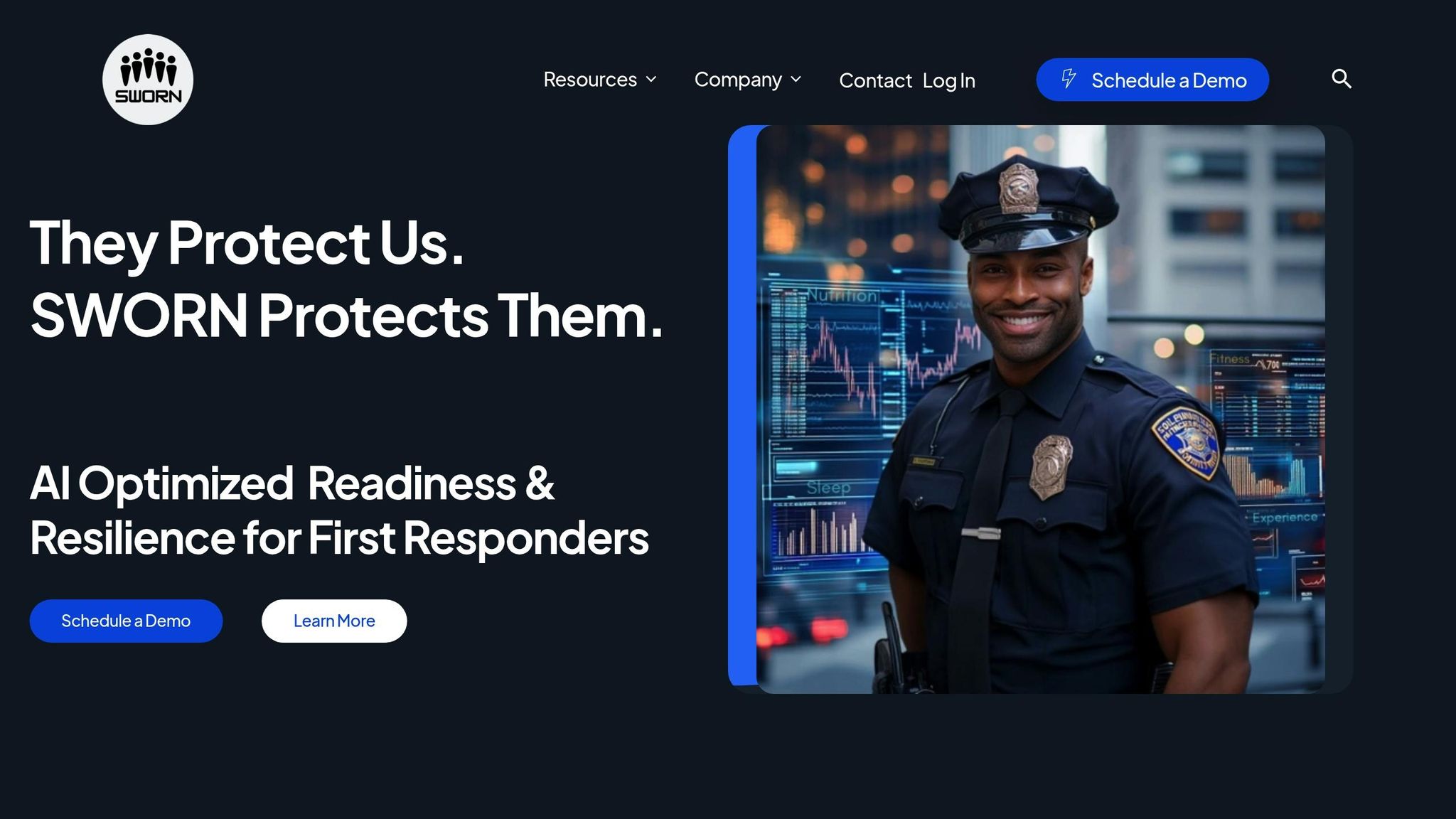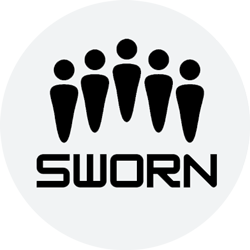First responders face extreme stress, with 85% experiencing mental health symptoms and a suicide rate surpassing on-duty fatalities. AI now offers a solution by creating personalized recovery plans tailored to their unique needs.
Key benefits of AI-driven recovery systems:
- Real-time stress tracking: Uses biometric data like heart rate and sleep patterns.
- Custom recovery plans: Adjusts recommendations based on workload and stress levels.
- Improved outcomes: 40% fewer stress-related sick days and 25% faster recovery times.
How AI Analyzes and Manages Stress
Tracking Stress with Biometric Data
AI platforms leverage wearable sensors to monitor key stress indicators like heart rate variability, sleep patterns, and physical activity in real time. These tools can differentiate between normal physical exertion and more concerning stress levels, triggering interventions to prevent stress from escalating.
Real-Time Data for Personalized Support
By combining biometric data with CAD and RMS feeds, AI systems create a detailed picture of each responder’s stress exposure and recovery needs. After high-stress events, these systems automatically adjust recovery plans based on the individual’s biometric history, offering tailored recommendations. Initial trials show that these real-time adjustments lead to noticeable improvements in overall wellness.
AI Recovery Tools: Research Findings
A 12-week study revealed that responders using AI-driven recovery tools experienced a 30% faster heart rate recovery, a 20% increase in sleep duration, and a 25% reduction in PTSD symptoms compared to traditional methods. These results highlight the potential of AI in improving stress management.
AI IRL – Episode 7: AI and Robotics for Disaster Response

Main Elements of AI Recovery Systems
AI recovery systems use real-time stress tracking and three main data types to create personalized recovery plans.
Types of Data Used
These systems integrate biometric data (like heart rate and sleep patterns), operational data (such as work schedules or task loads), and social data (including input from peers and professionals). Together, these data points create a detailed stress profile for each individual.
Creating Individual Recovery Plans
By analyzing this combined data, AI generates customized recovery strategies. These plans adjust dynamically as new information becomes available. For instance, if biometric readings show increased stress after a high-pressure event, the system might recommend specific self-care techniques or adjusted rest periods. This constant feedback ensures that recovery plans evolve to meet the responder’s changing needs.
Data Security and Ethics
SWORN.ai prioritizes data security by encrypting health information, anonymizing analytics, and implementing strict access controls. This commitment to privacy helps build trust and encourages the use of AI-driven recovery tools.
sbb-itb-aa48905
Results from the Field
Deploying AI-powered recovery protocols in the field has led to noticeable improvements in responder health and performance. These include a 40% drop in stress-related sick days and a 35% quicker recovery following high-intensity incidents. These results highlight how tailored support strategies powered by AI can make a real difference. Let’s dive into some specific outcomes.
Success Stories with AI Recovery
Real-world applications of AI using biometric monitoring and workload analytics have delivered impressive outcomes. Departments implementing these protocols have seen better sleep quality, improved physical recovery, and higher overall wellness scores. Field studies revealed a 45% boost in consistent exercise habits and a 50% improvement in stress management among responders. These results stand out when compared to more traditional recovery approaches.
AI vs. Standard Recovery Methods
Traditional recovery programs tend to be reactive, addressing issues after they arise. In contrast, AI-driven protocols continuously analyze data to adjust interventions proactively. This allows for quicker responses to stress signals and more effective recovery strategies overall.
SWORN.ai‘s Recovery Solutions

SWORN.ai takes real-world findings and turns them into actionable recovery strategies through its specialized platform.
What SWORN.ai Does
SWORN.ai leverages AI to combine real-time biometric data from wearables, workload information from CAD and RMS systems, and private survey responses. This data is used to create personalized recovery plans. The platform’s proactive approach constantly monitors incoming data to catch potential problems early. This allows for timely recommendations and support, tackling stress before it becomes a bigger issue. These features contribute to the reported 40% reduction in stress-related sick days and 35% quicker recovery times.
The Research Behind SWORN.ai
SWORN.ai’s recovery protocols are rooted in in-depth research on first-responder health. The system builds on three core principles: improving readiness with customized training, promoting wellness through timely self-care reminders, and strengthening resilience with positive coaching and habit-building techniques.
Conclusion
After exploring biometric tracking, dynamic recovery planning, and field outcomes, here are the main points to remember:
Key Takeaways
Combining real-time biometric monitoring, workload analysis, and professional support has significantly improved first responder health and preparedness.
Some of the most noticeable results include:
- Early Stress Detection: Real-time tracking allows intervention before stress escalates.
- Tailored Recovery Plans: Individual performance data shapes recovery strategies that fit personal needs.
- Boosted Readiness: Custom protocols promote better long-term health and operational performance.
The results speak volumes – stress-related sick days dropped by 40%, and recovery times improved by 25%. According to SWORN.ai, their platform integrates AI, live biometrics, operational data, and peer support to protect first responders’ health.
The path forward for first responder wellness is rooted in intelligent systems that adjust and respond instantly to individual needs. By embracing AI-driven recovery strategies, we’re ensuring first responders can safely and effectively serve their communities.




